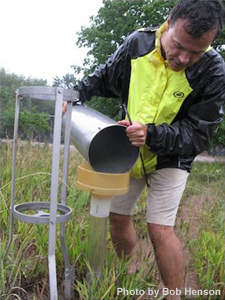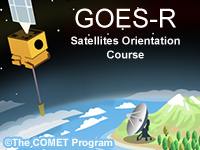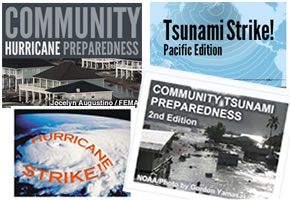The next generation of NOAA Geostationary Weather satellites will launch in March of 2016. Now that we are within the one year launch window for GOES-R, there is no time like the present to learn more about the exciting advancements that will soon become available to many in the western hemisphere. Start your learning with our, GOES-R...
read more
Winter is coming to the northern hemisphere and MetEd has a great collection of lessons in a self-paced course to help you hone your winter weather forecasting skills. Our Winter Weather Distance Learning Course addresses some of the key challenges to winter weather forecasting, including: microphysics, precipitation type, precipitation amount, and applications of NWP ensembles. Visit the course page and hit the Enroll button to get started....
read more
September is National Preparedness Month and the Federal Emergency Management Agency (FEMA) has information about hazards and how your family, workplace, or community can prepare. A recent poll found that many U.S. households are unprepared for a disaster, with 40% of parents not having an emergency plan and 35% not having even a minimal two-day...
read more
Earlier this year, COMET was approached by NOAA to help connect the public with the Weather-Ready Nation initiative. As a 20+ year training partner with NOAA's National Weather Service, we have a long history of improving the nation's readiness and responsiveness to extreme weather events. Read more about the Weather-ready initiative
here.

Matt Kelsch, COMET staff meteorologist, emptying a rain gauge during September 2013's epic flooding event in Boulder, CO.
Join the COMET Program of the University Corporation for Atmospheric Research (UCAR) for our next round of "pay-as-you-go" webinar series. The topic is flash flooding and the webinars will be offered on May 21-22, 2014. Led by flood expert Matt Kelsch, this series is designed to increase your knowledge and interest about these dangerous and fascinating natural phenomena.
The two webinars will look...
read more







